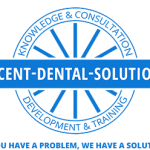In addition to my dental consulting business, I’m also a practicing full time dentist. So I deal with the same issues that my consulting clients deal with day in and day out. I can tell you that one of the biggest pet peeves of dentists (and lawyers and anyone else who takes appointments) is the chronically late client.
My expertise is helping dentists implement the proper processes and procedures to help them through all the different phases of their career.
Although I consider myself an expert, I’m also human and I still make mistakes. The trick is to identify the mistakes and take steps to ensure they don’t become career killing habits.
How you treat chronically late patients can have a serious impact on your dental practice. Before I go further, let me explain what I mean about chronically late. This is an individual who is 15 or 20 minutes late, between 50 and 75 percent of the time.
We all have them.
Here’s how we mishandled a recent situation and what it cost us. Firstly, this is an individual who is known (and expected to) be late for most appointments. As usual they began with an apology, followed by an excuse. They knew they were late, but it was traffic.
Our front desk coordinator was in no mood to hear it. She said “you’re almost 20 minutes late and something like this cannot continue to happen.”
With that the individual turned around and walked right out of the office. Less than 45 minutes later, I received an email saying how dissatisfied this patient was with our organization. He went on to say how unhappy he was about the way he was treated and how he had tried his best to be on time for his appointment.
The result of that particular process and procedure around dealing with late patients was that we lost that individual as a patient – who’d been with our practice for over ten years – as well as his wife and their three children.
Office processes and procedures have a dramatic effect on your day-to-day bottom line as well as your reputation and referrability. At this point, I haven’t seen a social media post or Google review from our former patient, but I’m sure it’s coming.
So how could we have handled this situation better? The correct way would be to get the patient seated and comfortable. The next step would be to explain that their appointment was at such and such a time and because they were late, we would do our very best to coordinate and complete their care.
In this particular case, it was a simple hygiene appointment. Most dental practices these days will have dental assistants, dental hygienists, doctors and associates to handle a hygiene appointments, regardless of how late that patient is.
The point I would try to make in this example is that scolding a patient for being late as they walk in the door should never happen. Save the “education” portion of the visit until after the appointment is completed.
If this was handled correctly, I think the average person would accept that because they were late it might take a little extra time to get their procedure under way. The result of not handling it properly was a financial hit to our company and to our reputation. And I’m sure if it’s happening to me, it’s happening to others.
So when, not if, you have to have a conversation with a chronically late patient, wait until after the set procedure and then have your treatment plan coordinator simply say to Mr. or Mrs. Smith, “is there a time that is better for you so that you won’t be late? Is there a way that we can coordinate the appointment so it is easier for you and there’s less stress on you?”
Proper and clear communication is the best way to reinforce expectations and remind patients that arriving on time is their job.

